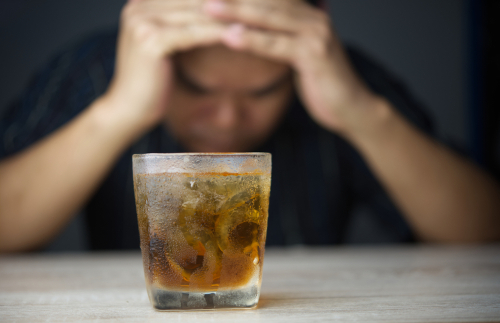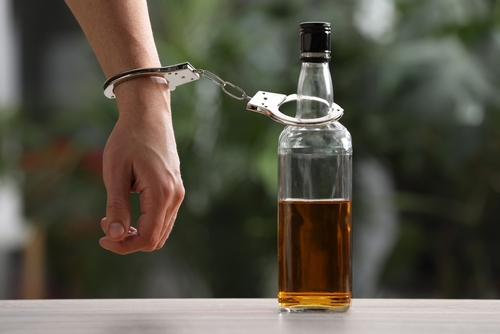The risk of addiction to alcohol is a serious concern, and for those who develop alcohol dependence, the process of withdrawal can be potentially life-threatening. Alcohol withdrawal occurs when individuals abruptly reduce or discontinue their heavy and prolonged alcohol consumption. The body, accustomed to the presence of alcohol, reacts adversely to its absence, leading to a range of withdrawal symptoms. While many individuals experience mild to moderate symptoms, some may face severe complications that can be fatal.
In this article, we will discuss the stages and symptoms of alcohol withdrawal, how dangerous alcohol withdrawal can be, and how to prevent fatal alcohol withdrawal symptoms.
Understanding Alcohol Withdrawal
Withdrawing from alcohol, also known as alcohol withdrawal syndrome, refers to the physiological symptoms that occur when a person suddenly stops or reduces their alcohol consumption after prolonged and heavy use. These symptoms can range from mild discomfort to severe life-threatening conditions, making it crucial to understand alcohol withdrawals to promote safer and informed management of alcohol use disorder.

Stages & Symptoms of Alcohol Withdrawal
Alcohol withdrawal progresses through various stages, each with distinct symptoms ranging from mild to severe. The severity of symptoms may vary depending on individual factors such as the duration and amount of alcohol consumption, medical history, and overall health. By understanding these stages and symptoms, individuals who are suffering from alcohol addiction can recognize the signs before it becomes fatal. The stages of alcohol withdrawal are:
- Stage 1: Mild Withdrawal
- Timeline: Usually begins within 6 to 12 hours after the last drink.
- Symptoms: Anxiety, restlessness, tremors, sweating, headaches, nausea, mood swings, irritability, and difficulty sleeping
- Many individuals may not recognize these early symptoms as alcohol withdrawal and may continue to drink to alleviate discomfort from these symptoms.
- Stage 2: Moderate Withdrawal
- Timeline: Develops within 12 to 48 hours after the last drink.
- Symptoms: Increased heart rate, elevated blood pressure, difficulty concentrating, increased irritability, deeper tremors, worsening anxiety, insomnia, vomiting, and diarrhea.
- This stage is critical for medical intervention to prevent progression to severe withdrawal symptoms.
- Stage 3: Severe Withdrawal
- Timeline: Usually peaks between 48 and 72 hours after the last drink, but symptoms can continue for several days or even weeks.
- Symptoms: Hallucinations, extreme confusion, severe agitation, profuse sweating, high fever, irregular heartbeat, and delirium tremens.
- Delirium tremens (DTs) is the most severe form of alcohol withdrawal, affecting around 3-5% of those experiencing withdrawal. This is a medical emergency and requires immediate attention.
Read More: How Many Days Does it Take to Detox from Alcohol?
How Dangerous is Alcohol Withdrawal?
As you may have noticed from the symptoms of withdrawal above, alcohol withdrawal can be dangerous to many individuals. Alcohol withdrawal can be as dangerous as the individual makes it, depending on the frequency of use, dosage, and how long they have been using.
Approximately half of individuals who are dependent on alcohol will experience withdrawal symptoms when they stop drinking. While alcohol withdrawal itself may not be fatal, there are notable withdrawal symptoms that can cause death. We have already discussed the various withdrawal symptoms that can occur during the stages of withdrawal. However, there are three main symptoms that individuals should be aware of. These are:
- Seizures: The seizures that happen during alcohol withdrawal are often called tonic-clonic seizures, which involve sudden muscle contractions followed by convulsions in the entire body. These seizures can lead to dangerous situations, such as choking or injuries caused by uncontrolled convulsions.
- Delirium Tremens: While we have already mentioned the severity of DTs, we have not mentioned specific dangerous symptoms caused by DTs. These symptoms include confusion, restlessness, heart attack, seizures, and stroke.
- Wernicke-Korsakoff Syndrome (Wet Brain): The combination of Wernicke encephalopathy and Korsakoff’s syndromes, also known as wet brain, is not actually caused by alcohol withdrawal but is caused by nutritional deficiencies prevalent in alcoholics. This is due to a lack of vitamin B1, or thiamine, in their diet and causes individuals to experience a state of stupor, coma, and even death.

How Likely Are You to Die from Alcohol Withdrawals?
The likelihood of dying from alcohol withdrawals varies depending on several factors, including the severity of alcohol dependence, the duration of heavy alcohol use, and the presence of any underlying medical conditions. While the majority of individuals who undergo alcohol withdrawal may not face life-threatening health conditions, there are some individuals who will. Understanding these risks is imperative to ensuring individuals recognize the likelihood of death from alcohol withdrawals. However, some factors can increase the likelihood of complications during alcohol withdrawal. These factors include:
- Existing Medical Conditions: Individuals with pre-existing health conditions like heart disease or liver damage due to alcohol abuse may face more severe withdrawal complications. Alcohol withdrawal can worsen these conditions, making the outcomes potentially life-threatening.
- Mental Health Conditions: If an individual has co-existing mental health problems like depression or anxiety, alcohol withdrawal can be more challenging and may lead to higher risks of dangerous effects. Specialized treatment is essential to address both addiction and mental health concerns.
- No Medical Supervision: Quitting alcohol abruptly without medical supervision can be dangerous, especially for heavy drinkers. Doing so may lead to more severe withdrawal symptoms and an increased risk of complications.
Preventing Fatal Withdrawals
Preventing fatal alcohol withdrawals is of paramount importance in the treatment of alcohol use disorder. This can be done with various treatment methods that offer a comprehensive and individualized approach. When preventing fatal alcohol withdrawals, it is essential to remember that conducting a medical assessment beforehand will allow the individual to receive proper treatment based on their medical history. By preventing these fatal withdrawals, individuals undergoing alcohol withdrawal can be supported and guided toward a safer and more successful path to recovery.
Learn More: Is Tapering Off Alcohol the Best Detox Method?
Treatment for Alcohol Addiction & Withdrawal
Treatment for alcohol addiction and withdrawal involves a comprehensive approach that addresses both the immediate withdrawal symptoms and the underlying issues related to alcohol dependence. Successful treatment aims to help individuals safely manage alcohol withdrawal, overcome addiction, and achieve long-term sobriety. This kind of treatment is typically done by a treatment center where they can medically supervise individuals undergoing withdrawal. During this time in the treatment facility, individuals will work with medical professionals to craft a treatment plan for their addiction. A typical treatment plan may include the following:
- Medical detox
- Behavioral therapy sessions, including cognitive-behavioral therapy and experiential therapy
- Medication-assisted treatment
- Dual diagnosis treatment to address co-occurring disorders
- Aftercare planning

Alcohol Detox with MD Home Detox
Individuals that are going through alcohol withdrawals should consider utilizing alcohol detox services and receiving addiction treatment. By receiving medical care for their alcohol detox, individuals can safely manage their withdrawal symptoms and substance cravings.
At MD Home Detox, we provide at-home detox services to those struggling with substance abuse and seeking treatment options. Our medically-assisted detox is a safe way to remove toxins from the body while managing withdrawal symptoms, all from the comfort of your own home. By providing these services, we hope to give our clients the best chance for recovery.
If you or a loved one are suffering from alcohol addiction or any substance use disorder, contact us today to learn more about our programs.

